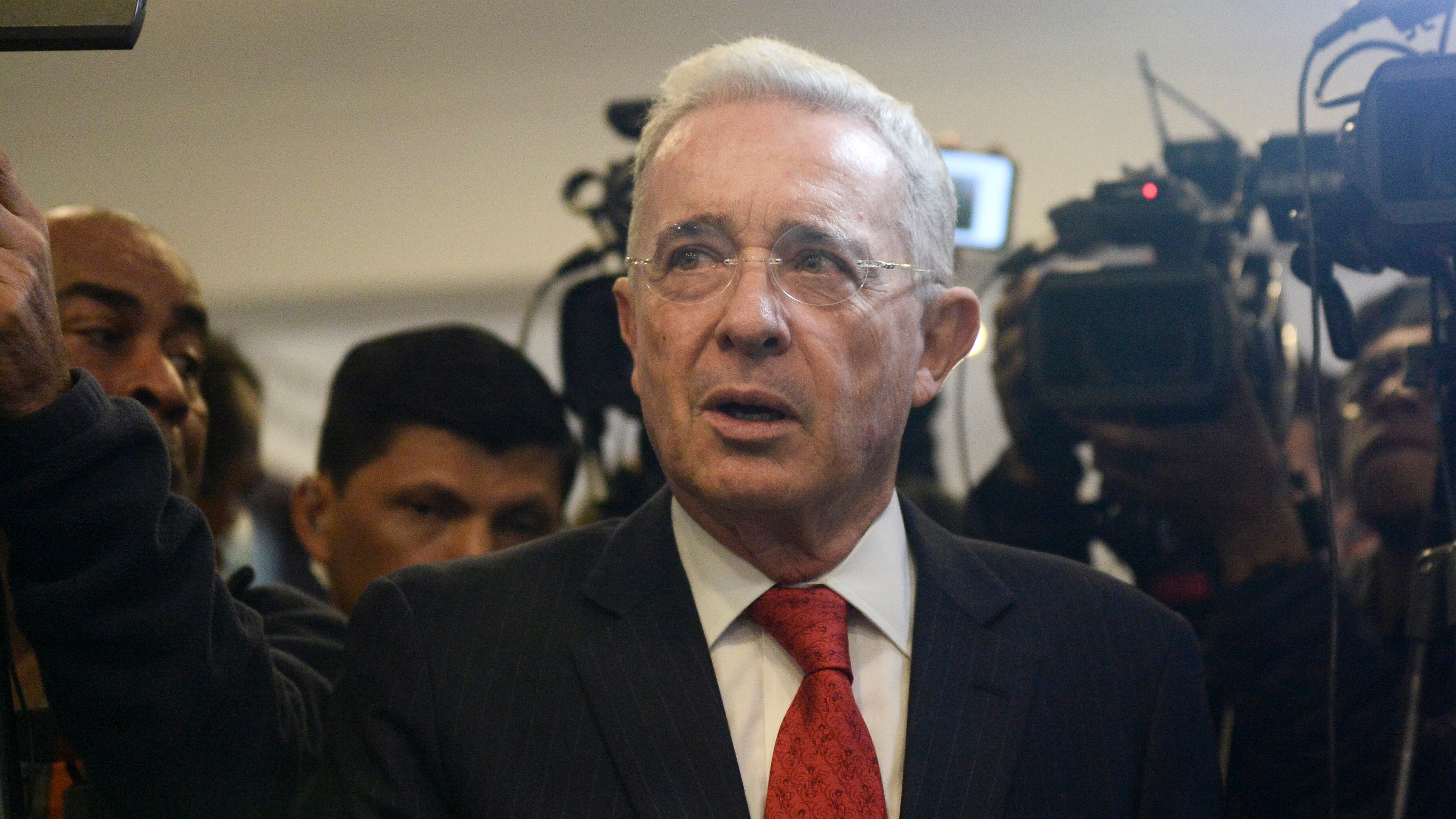In a ruling that resonates strongly at the national and international level, former President Álvaro Uribe Vélez has been declared guilty of the crimes of procedural fraud and bribery in a criminal proceeding. This sentence, the result of a complex legal battle that lasted for over a decade, marks an unprecedented milestone in Colombian justice, generating a political and legal earthquake.
A fundamental aspect in the legal process against former president Álvaro Uribe Vélez has been the validity of the phone interceptions. The judge Sandra Liana Heredia endorsed the legality of the recordings of the former president’s phone line, ordered by the Supreme Court of Justice in 2018.
PUBLICIDAD
The judicial official dismissed the arguments presented by lawyer Jaime Granados, main defender of the former president, who had requested the annulment of said phone interceptions, carried out between March 9 and April 9, 2018. The judge indicated that “the evidence allows for a reliable clarification” of the delay in canceling the interception order issued by the Supreme Court of Justice. By citing various expert reports and records issued by the high court on this matter, the judge concluded that “the suspicion invoked by the defense is not founded,” thus validating a central piece of evidence in the accusation.
ABC of the case
The complex legal dispute that has pitted former president Álvaro Uribe, leader of the opposition party Centro Democrático, against senator Iván Cepeda, from the ruling party Pacto Histórico, dates back 13 years. The controversy began in Congress during a debate on the origins and consequences of extreme right-wing paramilitary groups in Colombia. At that time, Senator Cepeda insinuated alleged connections between then-Senator Uribe and these criminal structures.
After the heated legislative debate, Uribe decided to report Cepeda to the Supreme Court of Justice. His argument was that Cepeda, allegedly, was irregularly seeking testimonies from former paramilitaries in prison, both in the country and abroad, in order to link him to these illegal armed groups. However, in an unexpected turn of events, the Supreme Court of Justice, in 2018, did not find sufficient evidence to proceed with the criminal case against Senator Cepeda and closed the case.
But the same judicial decision brought about a radical change in the situation: the Court ordered an investigation to begin against Uribe for alleged witness tampering against his political opponent. It was at that moment when the former president went from being the accuser to becoming the accused, and the complaint he initiated for witness tampering, defamation, and slander turned against him.
In 2020, the Supreme Court of Justice ordered house arrest for Uribe. Faced with this historic decision, the former president resigned from his position as senator of the Republic, which implied the loss of his immunity and the transfer of his case to the regular justice system. Uribe argued at the time that he did not have sufficient guarantees in the highest court of justice. However, in 2022, a judge determined, with Uribe already free, that the legal process against him should continue in the new jurisdiction.
The Voices in the Trial: Innocence versus Conviction
During the administration of former Attorney General Francisco Barbosa, the General Attorney’s Office requested on several occasions to close the case against Álvaro Uribe. However, that request, along with another in the same direction from the General Prosecutor’s Office in 2022, was denied. The former president has repeatedly insisted on his innocence throughout the public hearings and during the trial phase, which ended on July 8 after 67 days. Uribe has maintained that it is all part of a “political revenge.”
“I, who have an immense political responsibility, am facing a trial. I have done so with respect for justice, for the judge. My disagreements with the prosecutor have been presented with frankness and respect. But we cannot forget that this trial has been induced by the current government, by its most representative senator,” Uribe stated in a video published on his official account on X on July 12th.
On the other hand, Senator Iván Cepeda has maintained a firm stance. “We acted with truth, we acted with the conscience of having defended our rights. So we firmly believe that former President Uribe should be convicted of all charges and the accusation that has been made,” he told local media on July 8 at the end of the trial, expressing his confidence in the conviction.
The prosecutor in the case, Marlene Orjuela, requested Judge Sandra Heredia of the 44th Criminal Court of Bogotá to convict Uribe for the crimes of procedural fraud, bribery in criminal proceedings, and bribery of a witness. The defense of the former president has strongly rejected and contested these charges during the trial phase by presenting witnesses and evidence. The final decision now lies with the judge, who will determine whether the case is closed or if the former president is convicted.
Next steps: A decision in the first instance and the appeal
It is important to clarify that the ruling issued by the 44th criminal judge of Bogotá is a first instance decision. Both parties involved in the process, both the Prosecutor’s Office and the civil party (represented by Iván Cepeda), if the ruling is acquittal, as well as the defense of former President Uribe, if the ruling is conviction, have announced that they will exercise their right to appeal the determination.
The decision on appeal by a higher court is expected to be known in the month of October. This means that the judicial process has not yet concluded and that the final outcome of Álvaro Uribe in this case will be determined at a later stage.
